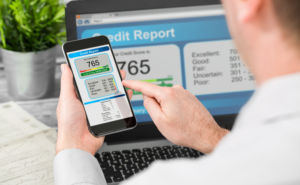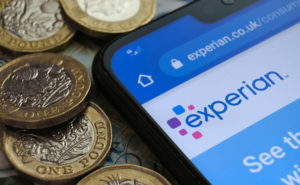How To Dispute Credit Card Charge
Have you experienced a charge on something you have never bought or billed for something you have already returned? Or perhaps you were charged for something twice by your credit card issuers, or it had failed to credit an amount to your account? These errors may sound frustrating and troublesome but are very easy to correct. All you need to have is a bit of patience and information about what a credit card dispute is and how to dispute a credit card charge.
We will guide you through your dilemma and talk about the dispute settlement process offered by FCBA, the Fair Credit Billing Act.
The law of dispute settlement procedure is only applicable to open-ended credit card accounts. A few examples of open-end credit card accounts are credit cards and accounts for revolving charge accounts like personal lines of credit, home equity lines of credit, and department store accounts.
The law doesn’t make up for contract-based installments, extensions of the loans, or credit repayments with a fixed roster because there are people who buy automobiles, home appliances, and furniture or repay their loans in installments.
Before we talk about filing a dispute credit card charge, you need to know what it is.
Table of Contents
What is a Credit Card Dispute?
Suppose you have even the slightest speculation of an error of charging on your credit card account. In that case, this blog will provide information that will guide you to understand what a credit card charge dispute is and how you can solve it without breaking a sweat.
A credit card charge dispute means a process that helps you contest an error in billing on your account, or the respective merchant doesn’t respect their terms & conditions.
There is a difference between a dispute and asking for a refund from the business you purchased from. Requesting a refund from the business should be your first approach when you would like to have your money back in your account, like canceling a plan or not being satisfied with the product or services.
If your credit card issuer is Capital One, they won’t be able to refund your money back as a representative of the merchant you did business with. Even if you file a dispute with Capital One, they will ask the business to review your request in light of the terms and conditions you had agreed on.
The merchant will look into the same terms & conditions you have agreed to while making your purchase.
But don’t forget that, in most cases, the credit card charge you find is just a mistake in most of the cases. Fraud is rarely detected on your credit card bill. It requires a person to steal your card or card number to make an unauthorized transaction, which isn’t very common as a human mistake.
However, waiting on filing a dispute is not a good option, and the results may not come in your favor after a while. You need to file a dispute for the charges you have made. Otherwise, you owe yourself money you never spend.
Dispute a Credit Card Charge
Nothing can be worse than facing down a large credit card bill for something you didn’t make a purchase. Your legal right to exercise is disputing a charge regarding this error or fraud. Whether your credit card charge is twice or hits with a fraudulent or overcharged, FCBA allows you to file a complaint against it.
The process of filing a dispute is fairly simple. However, the procedure differs from situation to situation, the credit card you own, the credit issuers’ policies, the merchant’s terms & conditions, and more.
The pandemic has brought positive changes in people regarding managing and tracking their finances. They monitor everything nowadays and ensure that everything stays as accurate as possible.
They are using their credit cards more responsibly and more vigilantly than ever. The complaints over the past two years regarding these errors and frauds have decreased because people’s awareness about the issue has increased.
Here’s what you need to follow to dispute a credit card charge;
Checking Your Credit Card Statement
You need to make sure that you check your credit card statements monthly. It will help you track the purchases you have made and help you keep your credit ratio low to maintain a good credit score on your personal credit profile.
An Error or A Fraud?
Checking the statement also comes in handy when you find an unauthorized purchase on your credit card. This find will also help you whether it’s an error or a fraud. Once you can determine whether it’s an error or a fraud, immediately notify your card issuer.
The process to resolve the dispute depends on the nature of the activity, error, or fraud, and based on this nature, the procedures will differ to greater extents.
Notifying Your Merchant
Resolving any dispute directly with a merchant could be the easiest solution if your card is overcharged, charged incorrectly, or double-charged, and not get credit for something you returned or canceled. You can show your receipts and statements for brick and mortar stores, send an email or call your online merchants.
Afterward, it’s your merchant’s call whether they want to cancel your request or they want to reverse the accidental charge.
However, you have all the right not to involve the merchant in the first and file a dispute with your credit card company.
Notifying Your Card Issuer
It is very important to notify your card issue within 60days from the date of the state where the billing error has appeared. It is called preserving your right to dispute the error. A majority of the credit card issuers like Bank of America and more let you initiate a dispute over billing errors via their respective websites and through their helplines.
While filing a dispute, you need to ensure that you have the following pieces of information and documents on you;
- Your name.
- Your credit card number.
- The amount of the error charged.
- The date of the charged error.
- The merchant’s name appeared on the billing statement.
- Details of resolving the issue with the merchant, if any*
- Receipts’ copy and other proof of the transaction.
Conclusion
The pandemic has taught people to be responsible for their expenses and expenditure as most consumers are in financial tightropes. It would be best to make very careful decisions about your money and personal credit profiles.
If you fail to make a wise decision with your money, it will affect your financial standings negatively. You need to understand your standing with your credit companies because disputing is a very powerful consumer tool if used correctly.
Otherwise, if you fail to do it right, the charges may not disappear from your credit profile. It can hurt your credit score report if you don’t handle it correctly.






